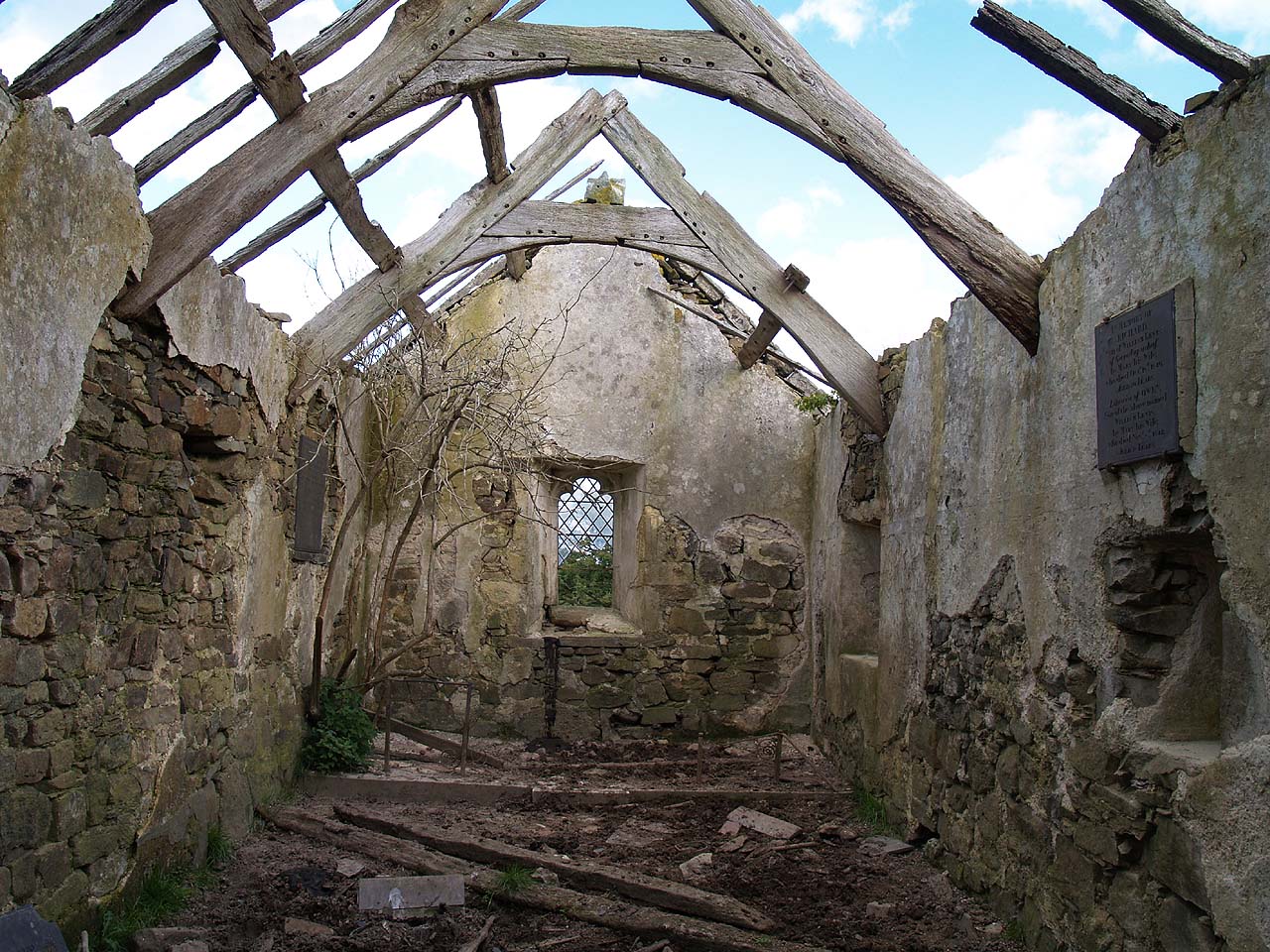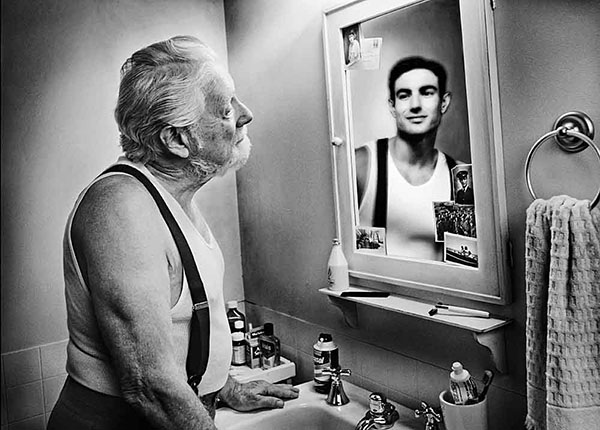 Repost from March 2015,
Repost from March 2015,  revised
revised  Monday, July 18, 2016 at 05:10PM
Monday, July 18, 2016 at 05:10PM  To everyone who conquers I will give some of the hidden manna, and I will give a white stone, and on the white stone is written a new name that no one knows except the one who receives it. ~ Revelation 2:17
To everyone who conquers I will give some of the hidden manna, and I will give a white stone, and on the white stone is written a new name that no one knows except the one who receives it. ~ Revelation 2:17
Today I’m intrigued with a smooth white stone, engraved with a name known only to God—and the path to that stone.
The setting for this single verse is the resurrected and glorious Jesus walking among oil-burning lampstands, speaking to believers huddled together against the attacks of a dying world. In every single case (he dictates seven letters) Jesus reminds us that overcoming is a practical, attainable hope. He himself is our example of overcoming—not by winning the next battle or election, but by laying down his life, even for those who hate him.
Our resurrected Lord teaches us that we discover the overcoming life only when the Father raises us again to a new kind of life.
The path to the white stone not only involves overcoming but also a secret supernatural food: the hidden manna, given from the Lord’s own hand. Sounds strange, doesn’t it? I have no firm idea what it means. Perhaps he’s talking about the sustaining life that comes from abiding with Jesus day-by-day, or perhaps yet another miracle wrapped in the wonder of the Eucharist. I know only that it is from him, and I hope to have the good sense to eat the bread he offers.
It is a Kingdom meal, served to those who sit at the banqueting table made possible by his life, death, and resurrection. No worldly connections can gain a seat at this table, but the poor, the sick, the lame, and the sinner will find an engraved place setting.
Finally: here, among the overcomers and the feast of the secret bread, Jesus presents a personal gift. Let the rich and famous have their swag bags. The swag of God is a small white stone, engraved with a name not even you yourself knew, but when you see it for the first time you immediately know it to be your true name, the name only a loving Creator can bestow. All your life you had the feeling that whoever you were, it wasn't really you. Not fully you. Not even you knew you. The name you learned to spell with great block letters as a child, the name that followed you through adolescence and adulthood, the name you handed to others like a business card—that name never fit. Not fully. But there was someone who knew who you really were. Someone who was calling you by that name, and the sound of his voice summoned you to a new identity.
Carl Jung said, “The world will ask you who you are, and if you do not know, the world will tell you.” He was only half right: while the world asks our name, Jesus reveals our name. While the world tries to twist our desires, Jesus serves the true food: food that satisfies and comes only from him. Only in the overcoming do we discover our destiny, and we overcome not by our effort but by his example. In fact, this same book reveals another secret: “They overcame because of the blood of the Lamb and because of the word of their testimony, and they did not love their life even when faced with death.” That's what he demonstrated by his own life; that's what we are called to imitate.
Only then will I know myself. I will find myself when I find him.
 Tuesday, May 31, 2016 at 11:05AM
Tuesday, May 31, 2016 at 11:05AM  Winston Churchill said it first: “Never let a good crisis go to waste.” If you’re trying to manipulate others into action, panic is wonderful ally. Fear issues a standing invitation: everything is an emergency, and we are all going to die.
Winston Churchill said it first: “Never let a good crisis go to waste.” If you’re trying to manipulate others into action, panic is wonderful ally. Fear issues a standing invitation: everything is an emergency, and we are all going to die.
In the marketplaces of politics and consumerism the voices of this age demand attention. Fear sells everything from mouthwash to medicine. Candidates run for political office by cranking the levers of fear. If we do not listen to these voices, they raise their volume to a glass-breaking pitch. Anyone who is not panicking clearly doesn’t understand the situation.
We live in the age of serial crises: elections, government corruption, climate change, financial collapse, Kayne’s latest album. Anyone who isn’t panicking obviously doesn’t understand the situation. There is, however, another voice, a voice that speaks from the age to come, and addresses the fears of this present age. It’s the voice of peace. The voice of God. This voice has been speaking for centuries. This voice walked among us and spoke peace to fear. Here are a few examples:
Professional mourners wail outside the house because a young girl is dead. They excel in giving voice to grief and loss, and why not? It’s all in a day’s work. But Jesus asks, “Why all this commotion?” Instead of death, he sees a sleeping child. This elicits laughter and scorn, the cousins of crisis. In the end, the Lord’s quiet voice reaches the only ears that matter: “Talitha, koum.” The little girl gets up, and has a bite to eat.
There’s a woman tossed down, half-naked, into the dirty street. Around her angry voices cry, “Stone her!” They turn their attention to Jesus, who stoops to street level and presses his finger into the dirt. The voices cry again and again, and demand the Lord’s judgment. But they must quiet down in order to hear his words. His peaceful voice overrules the fearful voice of orthodoxy. Instead it offers peace to every sinner and an invitation to go and sin no more—not out of fear, but from gratitude.
Even the Lord’s closest friends know the songs of panic. When their boat is nearly swamped by wind and waves, they come to Jesus, who is sleeping in the back, resting on a cushion. “Rabbi! Don’t you care if we drown?” And this is the issue: when we choose to enter into crisis it reveals that in our fear and panic we are convinced that God doesn’t care. He doesn’t answer. He’s asleep! What can you do when God is asleep? But what if Jesus, asleep on a cushion, is the word of God to us? What if God is dreaming of better things for us? His inaction is a parable. Finally the Lord awakes and says, “Don’t be afraid, where is your trust?” He wasn’t just asking the disciples in the boat.
The voice of fear cries out for action. It shouts: do something, take up arms, mount your horse and ride! But the man asleep on the cushion lives out the word of God to us: he saw it in the Old Testament: “In repentance and rest is your strength, In quietness and trust is your strength.” He lived these words to the full, and then he gave peace to his friends, like a gift: “Peace I leave with you; my peace I give to you; not as the world gives do I give to you. Do not let your heart be troubled, nor let it be fearful.”
The only question is whether we will receive the Eternal Sabbath, or take up our horses to flee. Panic tells the lie, “God doesn’t care.” But Jesus tells the truth, even in his sleep.
 Tuesday, April 5, 2016 at 01:24PM
Tuesday, April 5, 2016 at 01:24PM  After 40+ years of walking with God I have met plenty of unhealthy Christians who belong to a church, but I have never met a healthy Christian who does not belong to a church. What are we to do with this? The currently popular solution is to hang out informally with our believing friends and declare, ‘This is my church. These people know me and love me. I receive nothing from organized religion.’”
After 40+ years of walking with God I have met plenty of unhealthy Christians who belong to a church, but I have never met a healthy Christian who does not belong to a church. What are we to do with this? The currently popular solution is to hang out informally with our believing friends and declare, ‘This is my church. These people know me and love me. I receive nothing from organized religion.’”
It’s difficult to stand in defense of the church when the church is so screwed up. It’s a terrible a way to run a railroad, but apparently the Father thinks it’s worth the risk. We were designed for community, but also something beyond mere community, we were designed for the church.
Many will object, and I invite you all to tell me gruesome tales of hypocrites, self-righteous blowhards, and sexual predators. I get it. The North American church is desperately sick, and in many cases the church hinders the spiritual growth of believers. But before we all decide have coffee and croissants down the street with the cool kids and call it a new kind of church, I’d like to suggest that God has given us a few clues about what He thinks makes up a church. The bottom line is: church is God’s idea, and we ignore it at our peril.
It’s a book-length discussion--a life-length discussion, actually--but here is a list of at least six vital parts of any real church:
§ The church meets together regularly: Sunday morning isn’t the only possibility. In fact, Acts 2:42-47 suggests they met together far more than North Americans might find comfortable. In a variety of settings, for a multitude of reasons, followers of Jesus meet together regularly and share their lives together. I don’t give a rip when or where, but regular, habitual gathering is a mark of the church.
§ The church has a defined structure: Structure is built into God’s order of creation. Single-celled organisms reveal astonishing complexity of function; in the human body there is individualized function. Without the structure of a skeleton, the body cannot stand. These physical realities point toward spiritual truth. Amazingly, the scripture seems to endorse a variety of church structures, but every New Testament church had a recognizable structure. We can disagree on what that structure may look like, but it’s not possible to read Acts or the Epistles without recognizing it’s importance.
§ The church provides authority: Authority! Just mention the word and people tense up. Abuses abound, guilt is common currency, and the church in North American differs little from any business down the street. Yet we all must personally come to terms with passages like, “Obey your leaders and submit to their authority.” (Hebrews 13:17) Paul’s letters to Timothy and Titus could be considered all about authority! Nearly everyone has a horror-story about abuse of authority in the church. Here’s my take: authority without compassion and relationship makes a sham of God’s Kingdom, but compassion and relationship without authority misses God’s Kingdom entirely.
§ The church is a proving ground for love and forgiveness. “Therefore, as God's chosen people, holy and dearly loved, clothe yourselves with compassion, kindness, humility, gentleness and patience. Bear with each other and forgive whatever grievances you may have against one another. Forgive as the Lord forgave you. And over all these virtues put on love, which binds them all together in perfect unity.” (Colossians 3: 12- 14) These words are impossible to live out in isolation. I believe the Father designed families and churches as the venues for love and forgiveness. How can we live out these words apart from our families, or the church--which is the family of God?
§ The church equips God’s people. Christian maturity requires a nurturing family atmosphere. Gifts of the Holy Spirit and the development of Christian character thrive in a healthy community. Entertainment apart from equipping is antithetical to God’s plan for the church--there are plenty of churches that amount to nothing more than TV shows. But fellowship and community without equipping also falls short of the mark. If there's no equipping going on, it's not fully the church. Jesus is into lab, not lecture. And it's not recess, either.
§ The church provides a unique corporate witness: There have been exceptional individuals throughout history. Saints and geniuses appear larger than life, and because they are are so exceptional, they are easily dismissed as individuals, even freaks. But who could dismiss an entire community of faith? “A new command I give you: Love one another. As I have loved you, so you must love one another,” said Jesus in John 13: 34 “By this all men will know that you are my disciples, if you love one another.” The early church would either get you healed or care for you until you died. Widows, orphans and outcasts of the first century knew there was a refuge called “the church.”
Object if you will: it’s easy to do. The church has failed in every area. Today’s post is not a defense of the way things are. The church in North America is desperately sick.
Some things should change. I believe the change begins with us as individuals. If you must leave your current church, then go. But where? If you can find a group of believers attempting to fulfill these six ideals you will land in a safe place. Leaving a sick church may be the best decision. Ignoring God’s plan for your personal growth as a disciple never is.
 Friday, March 4, 2016 at 09:16AM
Friday, March 4, 2016 at 09:16AM  My friend read Shakespeare’s Hamlet when he was an 18 year-old high school senior. Over the decades he has returned to the story every ten years: at 28, 38, 48, and yes, now at 58. He reports to me that the play is radically different with each reading. The words have not changed, the reader has.
My friend read Shakespeare’s Hamlet when he was an 18 year-old high school senior. Over the decades he has returned to the story every ten years: at 28, 38, 48, and yes, now at 58. He reports to me that the play is radically different with each reading. The words have not changed, the reader has.
If this fresh experience is true for one who reads, I began to wonder about the one who writes. What we write in our youth may bear no relation to what we think and write in our old age. Which brings me to David, who wrote so many of the Psalms. David, the shepherd boy who became the prophesied hope of Israel, who was then chased by a madman king, then himself became the great king of God’s people. As David aged he became the husband of several wives, the father of many children, and finally an old king—a man with scores to settle. David was, in effect, more than one man: his years and experiences shaped him even as God’s favor and anointing pushed him forward.
When I read David’s psalms I’m left to decide which David wrote what Psalm. Sometimes the introduction of a Psalm tells us plainly, as in Psalm 18 (he was running for his life). But most often we are simply given the words, “A Psalm of David.” We are left to imagine when each Psalm was written and under what circumstances.
Here is an exercise in spiritual imagination: take David’s most famous Psalm—number 23—and imagine it from the mouth of young David, the shepherd boy.
Then read it again, this time hearing the words of a young man on the run for his life against the murderous rage of the insane King Saul.
Or yet again as the newly crowned king of all Israel.
Or (finally) yet again as the dying king who has witnessed the death of his own children and the infighting among those who want to succeed him to the throne.
Or, in a darker vein, take any of the Psalms where David cries out for God’s justice and rescue, or even for God to take vengeance on David’s enemies: the kind of Psalms C.S. Lewis says could only be written by “ferocious, self-pitying, barbaric men.” (As just one example take a quick look at Psalm 28). As I read these Psalms I imagine a very young David, someone unaware of the events he will face in the decades to come. In the passing years David will discover he himself is capable of lust, adultery, intrigue, murder, and pride. It's a cautionary tale of self-righteousness. Or perhaps not. Perhaps it is a comforting notion that even someone “after God’s own heart” can feel and think such thoughts. Or more simply still, that David was human, no different from you or me. We do not know what the years will bring, or what the events of life will surface in our own feelings and actions.
This exercise can lead us to greater insight, and what’s more, it can lead us to greater humility. The kind of grace which could seal our lips when we are tempted to criticize others because we are so convinced of the rightness of our cause, never realizing that even when we are on the “right side” of an issue, God looks at our hearts and actions far more than our opinions.
Will we be like young David, who rails and demands divine action (or worse, human action) or will we become the kind of person who enters each day with humility, recognizing the fact that our future holds experiences—and attitudes—for which we are not yet prepared?
 Friday, February 26, 2016 at 02:53PM
Friday, February 26, 2016 at 02:53PM  One day a couple of years ago I hung with Jesus in a dingy hospital room in Columbia, Kentucky. His diabetes was acting up again, which was no surprise because dumpster-divers don’t have the best diet even on a good day. He had already lost a few toes here or there in previous years but this time he was facing the possible loss of his foot. (Don’t worry: I prayed for him, his condition improved, and he ambled away from the hospital on both feet a few days later.)
One day a couple of years ago I hung with Jesus in a dingy hospital room in Columbia, Kentucky. His diabetes was acting up again, which was no surprise because dumpster-divers don’t have the best diet even on a good day. He had already lost a few toes here or there in previous years but this time he was facing the possible loss of his foot. (Don’t worry: I prayed for him, his condition improved, and he ambled away from the hospital on both feet a few days later.)
I’d actually been hanging out with Jesus for a couple of months, but I’m a little slow to recognize old friends.
It started when a guy named Bill came to church. You couldn’t miss him: Bill was a rumple of a man well over six-foot tall, with shaggy, wrinkled clothes. He topped his look off by a snow-white beard and white hair, neither of which had seen a comb in weeks. Everything about him screamed homeless. On his very first visit to church he headed straight toward our coffee bar. Bill’s big frame ambled slowly through our café as the result of his missing toes. The only thing more worrisome than whether he would make it to the coffee bar without falling was the possibly that he would make it to the coffee bar and then try to walk away holding the hot coffee in unsteady hands.
Bill and his coffee made it safely to a table, so I introduced myself. I did so more out of a concern for other’s safety than to make him feel welcome. (When you see people like Bill your first thoughts are about the possibilities of what could go wrong.) I wanted to check him out first-hand. Everything about Bill was confusing.
Where are you from? I used to drive a truck in the Northeast.
How’d you hear about our church? I drove by the other day.
Tell me about your family: I think they’re in Indiana, at least, they were the last time I talked to them.
When the service started Bill worshipped the same way most of us did, except he was taller, shabbier, and scarier than the rest of us. He raised his hands and tilted his head upward. He was content to be in the presence of God and God’s people—even if they were a bit nervous about being in Bill’s presence.
He became a regular each Sunday, and it turned out Bill had an entourage. He took care of Roberta, 60-plus years old, short, loud, and extremely off-putting. She was pretty ugly. One week Bill pulled me aside and apologized for her behavior and explained that her family had thrown her out on the street. He said he was her only protection. They lived together in an abandoned mobile home out in the county. There didn’t seem to be anything awkward about the arrangement because Roberta definitely needed protection, mostly from herself. A few weeks later Bill brought Doug and Maria, a thirty-something couple. They were both embarrassingly overweight. Doug seemed pretty normal but Maria was almost certainly mentally handicapped. Bill told me they were down on their luck and needed a place to stay until they got up on their feet. Bill’s squatter mobile home didn’t have heat or electricity but it was safe and dry, so he opened his home to them.
Bill came to church early and loved to greet people. If they asked what he did for a living he smiled and said simply, “I’m a dumpster-diver.” Which was true: that’s how Bill cared for Roberta and provided shelter for Doug and Maria (although he once complained to me privately that Doug ate too much—especially the fresh produce he regularly scored at the dumpster behind Kroger). The brave people who asked how Bill came into that line of work heard his story about a stroke he suffered while behind the wheel of an 18-wheeler in downtown New York City. It seems Bill lost consciousness and drove the truck into the entrance of a Manhattan office building. That’s when he switched careers.
One day Roberta came to church alone. She told me Bill was in the hospital. Small-town Kentucky hospitals can be pretty depressing places, but when I walked into his room Bill looked up and gave me a smile from his bed. The smile was his big mistake; that’s when I saw through his disguise and figured out I was actually hanging out with Jesus. I tried to play it cool and not let on. Bill asked about my family. He asked how the church was getting along. He put me completely at ease. There in his hospital room he was a gracious host, I was the guest.
I had come to pray for his foot. His circulation had failed. The foot was turning colors and he was likely to lose it above the ankle. He needed healing, but it was difficult praying over his ankle because after all, I was ministering to the Lord of Glory. When we finished praying I asked him if he felt any better. He said, “I’m not worried. It’ll all work out.” And it did. The circulation returned. He was discharged and came back to church just a few more times before he moved on to Indiana. He said he wanted to see his family.
A few months later I received a hand-written letter, blue ink on a notebook page. The ragged little pieces from where the page was torn out of the spiral notebook tickled the fingers of my left hand. Doug and Maria had found public-assisted housing. Roberta was ill and perhaps sick unto death, and Bill was finding riches in the dumpsters of southern Indiana.
He thanked me for the welcome he had received in Kentucky. I sat holding the letter, but I couldn’t recall if I had ever thanked him hanging out with us.